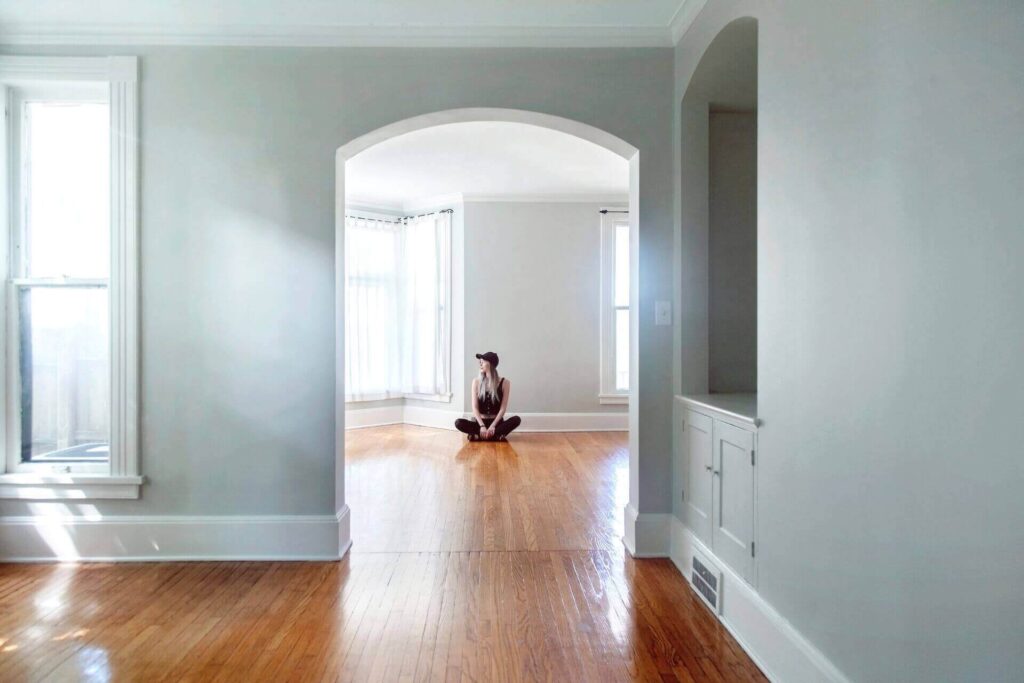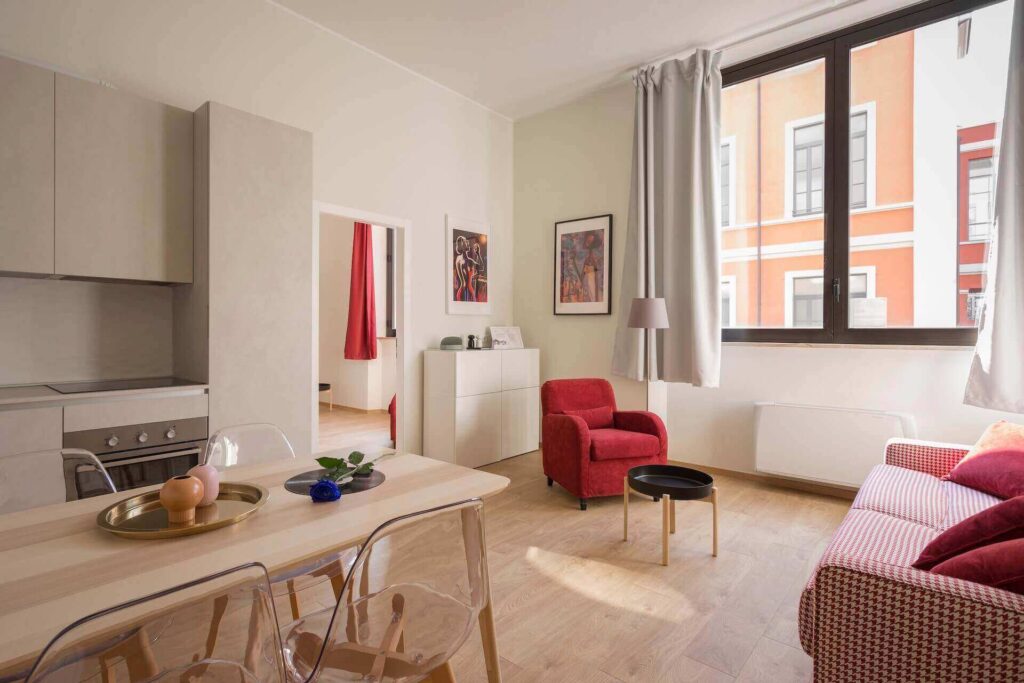Are you thinking of relocating abroad but worried about the future housing situation? What do you need to rent an apartment, and how should the whole process go after you move overseas? If you’re one of many wanting to find out these answers, we’re here to help. Keep reading to learn all the ins and outs of renting abroad.
Before starting your search, make sure you have all of the necessary documents and information on hand. Keep in mind that it is important to have an understanding of the rental laws and regulations in your new country, as well as any cultural customs for renting. After you get all the necessary information, it’s time to set the rent budget and research the apartments. When you find the potential one, try to negotiate the price, and don’t forget to check the lease and the residence itself before signing anything.
First Things First – Start Searching While You Are Still at Home
Once you choose the best place to live abroad for yourself and notify others about the move, one of the first things on your to-do list will be finding a place to live. If you’re relocating to a big city overseas, the competition for apartments can be fierce. So, how can you give yourself a leg up? Start searching even before moving internationally.
There’s no substitute for good old-fashioned research when it comes to finding an apartment, so it must not be one of the things you forget to do. Therefore, make sure you start reading local sources and expat communities forums to get a feel for the apartment market in your new city. What are prices like? What do apartments typically include? What neighborhoods should you avoid, and which should you consider? The more you know about your new home before you move, the easier it will be to find a place that’s just right for you.
It’s a good idea to try to contact a good local real estate agent who will already have extensive knowledge of the market – they can help you connect with properties that match your relocation budget and needs. They can also offer helpful advice on things like negotiating rent prices and navigating the lease agreement process.
Be Honest With Yourself – How Much Rent Can You Afford?
First of all, you need to think about your monthly income after moving overseas and then figure out how much you will need for food, health insurance, transport, utilities, memberships, subscriptions, and even entertainment. What’s left is how much you can put toward rent each month.
Still, keep in mind that it’s always a good idea to keep a bit of extra money in your bank account for unexpected events or long-term savings. At the same time, note that one of the good ways to lower your expenses when relocating abroad alone is getting a roommate instead of trying to live on your own.
Once you’ve decided on your absolute maximum rent, you can use this number for all filtered searches of places to stay. You can start with websites such as Housing Anywhere, where you can change the minimum and maximum rental prices, search in a certain rental currency, and see the results both in the listings and on a map.

What Do You Need to Rent an Apartment – Check All the Documents You’ll Have to Obtain
In the States, landlords often want to check a tenant’s credit report to see how stable their financial situation is. When you move to another country, you don’t have a credit history there. However, different countries may have different regulations when it comes to documentation you may need. In most cases, you’ll need to provide the following:
- A Passport or National ID Card
This is required for all foreigners who want to rent an apartment in most countries. On the other hand, a passport is one of the documents needed to travel abroad, so make sure it is up-to-date and will not expire during your stay.
- A Residence Permit
Depending on the country you’re renting in, you may also need a residence permit. This document allows you to stay in the country for a specific period of time and usually needs to be renewed every year or so. If you’re planning on staying for an extended period, make sure you get the necessary permits well in advance.
- A Letter of Employment
Most landlords will also require a letter of employment from your current employer. This document serves as proof that you have a steady income and are able to pay rent on time. Be sure to get this letter before starting your search for an apartment.
- References from Previous Landlords
These references serve as proof that you’re a good tenant and have no history of missed rent payments or damage to the property. If possible, try to get at least two references from different landlords.
Lastly, when planning on living overseas, you’ll usually need to provide a security deposit. This deposit is usually equal to one month’s rent and serves as insurance against any damage that may occur during your stay. Be sure to have the money ready when signing the lease so there’s no delay in getting your new home.

Be Prepared to Negotiate the Price
When relocating across the world, try lowering the rent before you sign a lease. Many landlords are willing to haggle on price, especially if they think you’re a good candidate for the unit. Negotiation has the potential to save you a few hundred dollars each month, so it’s definitely worth trying.
Before you start negotiating, it’s important to have a good idea of what similar apartments in the area are going for. This will give you a benchmark to work from and help you avoid being taken advantage of by a landlord. At the same time, remember to be polite and professional in your approach, even if the landlord is being difficult. This will go a long way in getting them to see you as a good tenant candidate.
Don’t be afraid to ask for what you want – remember, the worst the landlord can say is no. Start high and expect to come down some, but don’t undersell yourself, either. If you’ve done your homework and know what comparable units are going for in the area, then use that knowledge to your advantage.
If you need to brush up on your negotiation skills, make sure to follow some of the valuable tips from the video below:
Lower Your Expectations
If you want to live in another country and you’re looking for an apartment that’s affordable, well-located, spacious, and modern, you’re going to be searching forever. If you, for example, find an affordable place that’s in a great location, chances are it’s not going to be very spacious or well-kept. So if you’re relocating for the first time and want to find an apartment that’s actually livable, you need to be willing to compromise.
Perfection is an impossible standard, and you’re only setting yourself up for disappointment. Maybe the walls are a bit thin, and you can hear your neighbor’s TV at night, or maybe the kitchen could use a little updating. Chances are there’s something about every apartment that you’ll find imperfect – the key is to find an imperfection that you can live with.
If you’re getting frustrated with your search and feel like you’re never going to find an apartment that meets all of your criteria, it might be time to lower your standards just a little bit. Settling for an apartment that’s not quite perfect will allow you to put down roots in a new country and start enjoying relocation benefits.

There Are Things You Should Consider Before Settling In
A lease is a legally binding document, so it’s important to read and comprehend every line before signing it. If the lease is written in a foreign language (which can be required by the country’s law), don’t be afraid to ask or even pay someone to translate it for you.
Before signing the lease, you should also see the condition of the residence and learn which furnishing you’ll be able to use once you move. Most rentals for expats come with everything from appliances to beds and electronics – keep that in mind when getting international moving services and deciding what to keep and what to leave behind.
At the same time, make sure that everything your landlord says is in the rental is, in fact, there. Additionally, don’t hesitate to photograph furniture or other things that are broken as proof before you move in. When you decide to leave the residence, the landlords or management companies are usually very careful to look for anything missing or broken – and then charge you for it.
Know Your Duties and Rights
Your rights as a tenant imply the rental must be available and ready from the date your contract starts. At the same time, they also place maintaining responsibilities on the landlord or property manager.
However, as a renter, you will be anticipated to act in a specific manner and keep your end of the lease contract, as well. Some of your duties after relocating abroad will be:
- Paying all of the agreed-upon rental fees on time,
- Following the property regulations,
- Paying for any damage you’ve caused,
- Letting the owner know when you are leaving ahead of time.
Check for Internet Coverage
After you get help from your chosen international mover and move overseas, staying in touch with your loved ones will be one of the most important things on your moving-out list – and good internet coverage is a crucial precondition to it. Not to mention it’s absolutely necessary for many modern-day jobs. Luckily, the internet is available in most countries – but not every location has access to it. So, before you decide to get packing services and move to an amazing and affordable residence, check out how it connects to the rest of the world.
Consider All the Extra Costs Before the Move
As we mentioned above, rent payment may be the biggest monthly expense you’ll face, but it’s far from the only one. You’ll have one-time costs like hiring an international moving company, various deposits, and possible commissions for the real estate agent’s service.
Then there are recurring bills for transportation, groceries, and utilities (the electric bill, for example, could be high if you reside in a hot coastal area or cold climate). In some neighborhoods and buildings, renters also have to pay a fee each month to help pay for maintenance and upkeep. Make sure to ask the future landlord how much all of these services will cost.
Let Professionals Handle the Move While You Are Looking for a Place
You can try to do it all on your own, but it would be one of the most common relocation mistakes. Unless you’re experienced in international relocation logistics, it’s best to hire experts. With so much on the line – not to mention your valuable time – let the professionals handle everything from planning to execution. They will make sure that you move efficiently and stress-free, so you can focus on finding the perfect place for you. Therefore, make sure you search for the best international movers near you and book your move with them on time.
